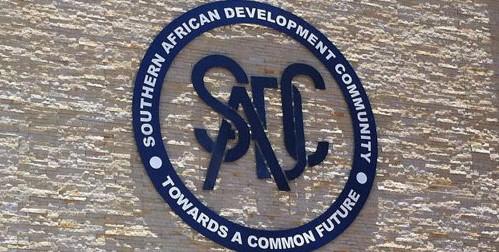News / National
Mnangagwa takes SADC's begging bowl to UN General Assembly
27 Sep 2024 at 07:30hrs |
0 Views

President Emmerson Mnangagwa has taken the urgent plea for assistance from the Southern African Development Community (SADC) to the United Nations General Assembly (UNGA), seeking support to combat the devastating effects of the El Niño-induced drought that has left millions at risk of hunger. The SADC has launched an international humanitarian appeal amounting to US$5.8 billion to address the growing food security crisis in the region.
Mnangagwa, who assumed the presidency of SADC during the bloc's summit in Harare, Zimbabwe, in August, was unable to attend the UNGA in New York for unspecified reasons. Instead, he was represented by Foreign Affairs Minister Frederick Shava, who delivered Zimbabwe's address on his behalf on Wednesday night.
According to reports, approximately 68 million people - about 17% of the total population across Southern Africa - are facing hunger as a result of the ongoing drought, which has caused food crops to wither prematurely in this farming season. The region, characterized by fragile economies, has been one of the hardest hit, prompting nations to urgently seek aid until food supplies are expected to stabilize in April 2025.
Shava highlighted the dire circumstances in his speech, stating, "The devastating impact of climate change is our common challenge that requires collective action to enable vulnerable communities to adapt while at the same time mitigating the impact."
He further elaborated on the SADC's efforts, noting that the appeal for aid was initiated to meet immediate needs stemming from the drought while also focusing on building resilience against future climate shocks. "The overarching objective is to meet the immediate needs occasioned by the El Niño-induced drought while, at the same time, building resilience for future shocks, including through the establishment of early warning systems."
Among the countries most affected by the crisis are Zimbabwe, Zambia, and Malawi, with rural communities expressing unprecedented levels of concern about their futures. UN climate crisis coordinator Reena Ghelani remarked, "Rural communities we have met on the ground tell us they have never seen anything like this. They are extremely worried about their future."
In response to the crisis, the Zimbabwean government has initiated a feeding scheme for school children in vulnerable communities, and food aid has been promised to assist rural areas facing dire shortages.
As Mnangagwa's government seeks support from the international community, the plight of millions in Southern Africa highlights the urgent need for collaborative efforts to tackle the escalating challenges posed by climate change and ensure food security in the region.
Mnangagwa, who assumed the presidency of SADC during the bloc's summit in Harare, Zimbabwe, in August, was unable to attend the UNGA in New York for unspecified reasons. Instead, he was represented by Foreign Affairs Minister Frederick Shava, who delivered Zimbabwe's address on his behalf on Wednesday night.
According to reports, approximately 68 million people - about 17% of the total population across Southern Africa - are facing hunger as a result of the ongoing drought, which has caused food crops to wither prematurely in this farming season. The region, characterized by fragile economies, has been one of the hardest hit, prompting nations to urgently seek aid until food supplies are expected to stabilize in April 2025.
Shava highlighted the dire circumstances in his speech, stating, "The devastating impact of climate change is our common challenge that requires collective action to enable vulnerable communities to adapt while at the same time mitigating the impact."
Among the countries most affected by the crisis are Zimbabwe, Zambia, and Malawi, with rural communities expressing unprecedented levels of concern about their futures. UN climate crisis coordinator Reena Ghelani remarked, "Rural communities we have met on the ground tell us they have never seen anything like this. They are extremely worried about their future."
In response to the crisis, the Zimbabwean government has initiated a feeding scheme for school children in vulnerable communities, and food aid has been promised to assist rural areas facing dire shortages.
As Mnangagwa's government seeks support from the international community, the plight of millions in Southern Africa highlights the urgent need for collaborative efforts to tackle the escalating challenges posed by climate change and ensure food security in the region.
Source - NewZimbabwe
Join the discussion
Loading comments…
































